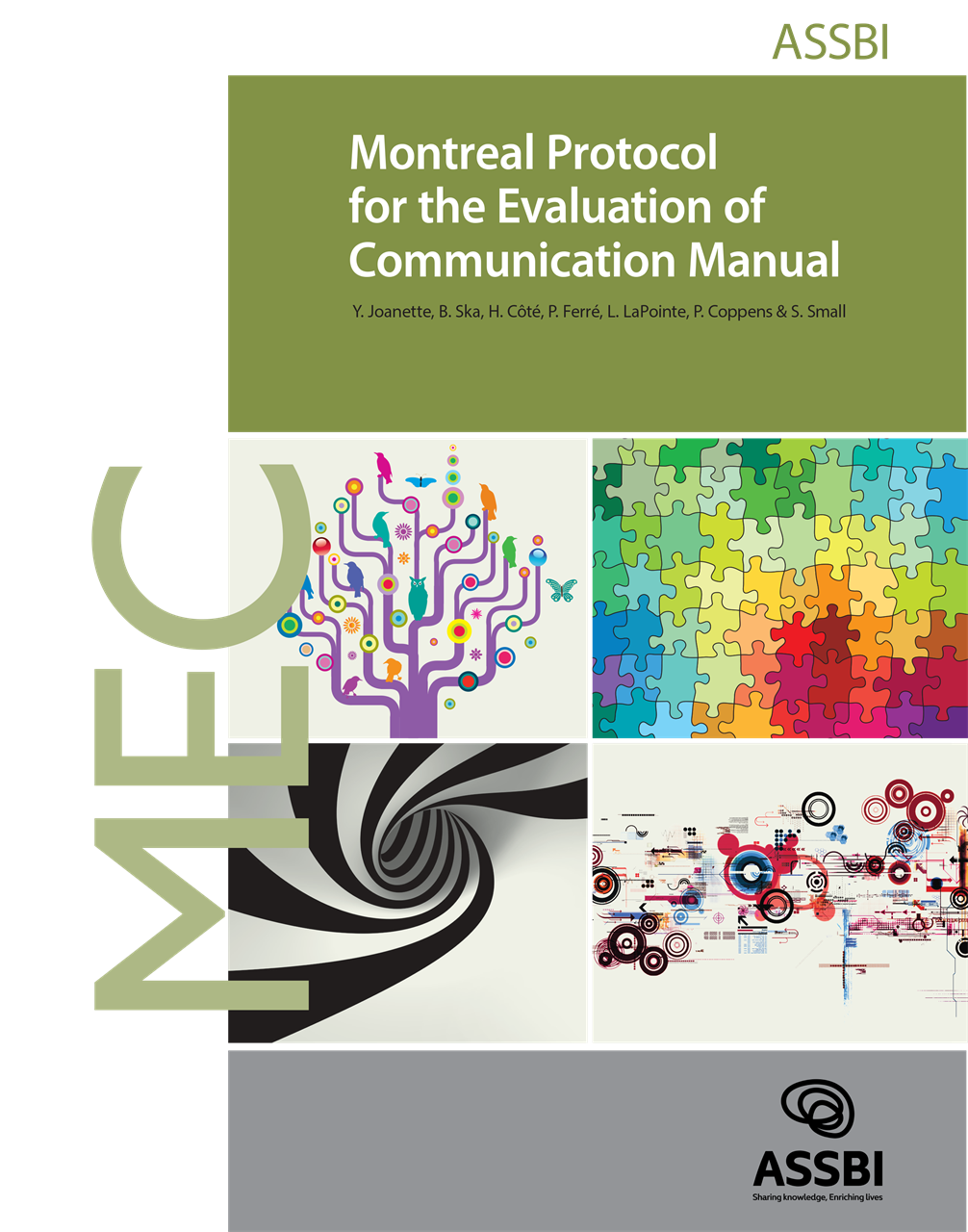| Montreal Protocol for the Evaluation of Communication (MEC) Manual Written by Y. Joanette, B. Ska, H. Cote, P. Ferre, L. LaPointe, P. Coppens and S.L. Small MEC is designed to provide speech pathologists and neuropsychologists with the means to examine the capacity of their patient to use language to communicate effectively. It assesses higher order language problems including the ability to use and understand lexico-semantic processes, metaphor and pragmatic inference and prosody. Even without a frank aphasic disorder, these kinds of impairments can impact negatively on social and interpersonal functioning and result in reduced social opportunities and quality of life.This test is suitable to test for communication disorders and language impairment in many patient populations such as right hemisphere stroke, traumatic brain injury and dementia. While these patients may not suffer from aphasia, they often have communication problems with “higher order” or pragmatic components of language such as discourse, lexico-semantic processes, metaphor and pragmatic inference and prosody. The MEC assesses these communication abilities in order to detect problems, not with basic language skills, but with communication more typical of social interactions, which rely upon extended discourse, inference and meanings expressed via tone of voice. Impairments in these abilities significantly curtail social participation and engagement, interpersonal functioning and quality of life. The MEC assesses both language comprehension and language production. It provides a comprehensive examination of critical facets of communicative competence including:
This English version of the MEC has been adapted from the original French version and includes norms from English speakers. The original MEC was specifically designed to address the need for a test of communication in non-aphasic populations by the lead author Yves Joanette and his colleagues in Canada and the USA. While there are many tests of aphasia available, few instruments measure these higher order facets of communication. The French MEC has been widely taken up by both clinicians and researchers to and translated into numerous other languages. A major international effort has seen the translation of the MEC into English including re-standardisation with 220 English speakers. The MEC kit comprises a manual, a stimulus book, response booklets and informant questionnaires and audio-files for assessing prosodic elements of communication. The response forms can be copied as often as required. |




